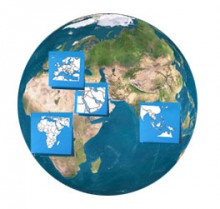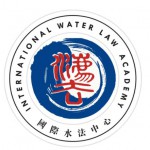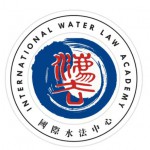Joint ITIM – UNU-CRIS seminar by Justine Miller & María Rodríguez Alcázar
Justine Miller & María Rodríguez Alcázar will present their PhD proposals titled “Untangling the Spaghetti Bowl of Regional Integration” and “Regions beyond the treaties – Bridging disciplines to understand regional integration” during this joint ITIM-UNU-CRIS Seminar.

Abstract presentation 1: The trend of regionalisation of global trade has given rise to a complex tangle of overlapping trade agreements and regional organisations which has often been referred to as a Spaghetti Bowl. Despite the important implications for trade flows and for the quest of multilateralism, no research has yet managed to provide a complete picture of the Spaghetti Bowl and to measure it or to evaluate how individual actors contribute to it. Consequently, the literature still lacks a detailed evaluation of the costs of the Spaghetti Bowl on trade flows. In this PhD, we will first use tools from network analysis to provide an estimate of the level of complexity of the Spaghetti Bowl. We will also study its evolution over time, and how individual agreements or organisations have contributed to it. In a second work package, we will use this measure of complexity to include it in gravity specifications in order to estimate the costs of the Spaghetti Bowl on trade levels. Finally, we will use the results of both work packages to simulate the behaviour of a simplified version of the Spaghetti Bowl. This will allow us to assess whether it acts as a stumbling block or as a stepping stone in the path towards multilateralism.

Abstract presentation 2: The study of regional integration in Economics is predominantly approached through the study of the Regional Organization (RO) performing in a given geographical space. However, critical regional integration studies in the field of International Relations (IR) insist that a RO can tell little about the dynamics of regional integration, and that there are many other components that we need to consider when it comes to understanding regions, such as the impact of global challenges, the role of technology, the influence of civil society movements or the emergence of certain leaders.
Through this research we aim to augment the studies of regional integration developed in Economics, by bringing the contributions and proposals from the theories in the field of IR. To this effect, we will first analyse the concepts and debates introduced by the theories, as well as the fundamentals of the methods proposed for the study of regional integration in Economics and IR, so as to identify the gaps between both disciplines (e.g. studying regions with a state-led approach focusing on their ROs; or only looking at migration, trade and investment flows when analysing the de facto integration of a region).
Taking full advantage of the potentials of the existing qualitative and quantitative tools for the understanding and comparison of regions, we will propose a methodological framework that can implement the lessons from the theories and serve as common ground for the collaboration between Economics and IR.
We will test and further develop our framework with an in-depth comparative study of the integration in the West and Southern Africa regions, which will serve us to identify concepts, processes and milestones that are key for the study of regional integration beyond the conventional Euro-centric approach.
With this research we intend to enhance the dialogue on the fundamentals of regional integration within disciplines, putting into practice the proposals of IR theories through the tools to look at regional integration developed by Economics. We aim to develop a shared framework which promotes and eases the shared work between disciplines and the generation of cumulative knowledge in the field of regional integration.
This is a closed event. For further information, please contact Ruben Dewitte (Ruben.Dewitte@UGent.be) and Pascale Vantorre in cc (pvantorre@cris.unu.edu).
Upcoming Events
Similar Events
No events found.



